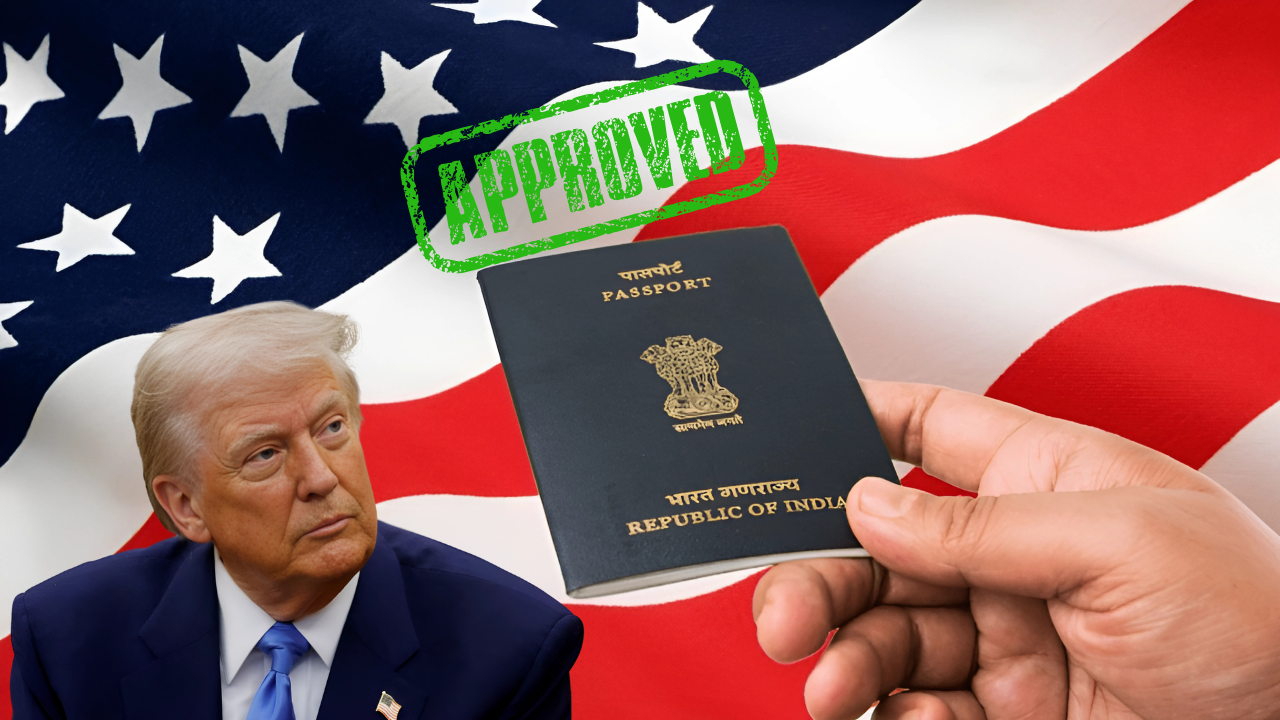Every year, thousands of Indian students aspire to pursue higher education in the United States, with the F-1 visa being the most sought-after pathway for those aiming to enroll in academic programs. Recently, a student who secured admission for a PhD program in the US shared their F-1 visa interview experience at the US Consulate in Delhi, offering valuable insights and encouragement for fellow aspirants. This article details their journey, the interview process, and provides a comprehensive resource list—including government schemes and scholarships—to support students planning to study abroad.
The F-1 Visa Interview Experience
Preparation and Arrival
The applicant, whose interview was scheduled for 9:00 AM on June 17, arrived at the consulate at 8:10 AM. Security protocols at the US Consulate in Delhi are strict: no electronic devices or bags are allowed inside. The applicant used a nearby shop to store their belongings for a nominal fee of ₹300.
Entry and Security Checks
Candidates are queued according to their interview time slots and undergo two rounds of security checks—once at the main gate and again at the building entrance. After passing through security, applicants wait in a designated lounge before being called for biometric verification. The applicant was then directed to a specific counter for the visa interview.
The Interview
The visa officer was described as polite and welcoming, making the environment less stressful for the applicant. The interview began with a request for the passport and I-20 form. The officer asked about the applicant’s educational background, university selection, and plans in the US. Key questions included:
-
Which other universities did you apply to?
-
Why did you choose this particular university?
-
Do you have any relatives or friends in the US?
The applicant answered honestly, emphasizing strong research infrastructure, collaborative opportunities, and alignment with personal academic goals. The applicant also mentioned having seniors in the US but no close relatives residing there.
After a brief period of typing, the visa officer approved the visa on the spot, keeping the passport for stamping and returning the I-20 form. The officer concluded the interview with a smile and the words, “Enjoy your stay in the US.”
Key Takeaways for Future Aspirants
The applicant emphasized the importance of confidence, clarity, and honesty during the interview. They advised future applicants to:
-
Be well-prepared and understand their research interests thoroughly.
-
Avoid memorized or vague answers.
-
Remain calm, respectful, and genuine throughout the process.
“For those going for a PhD, the officer isn’t trying to trap you—they just want to know you’re serious about your goals and know what you’re doing,” the student noted.
Government Schemes and Scholarships for Indian Students Studying Abroad
Studying abroad can be financially challenging, but the Indian government and several state governments offer robust support through scholarships and loan schemes. Below is a detailed table summarizing the key central and state government initiatives:
| Scheme Name | Eligibility | Details |
|---|---|---|
| National Overseas Scholarship (NOS) – SC | Scheduled Caste, Denotified Nomadic & Semi-Nomadic Tribes, Landless Agricultural Labourers, Traditional Artisans | Financial assistance for Master’s and PhD courses abroad. |
| National Overseas Scholarship (NOS) – ST | Scheduled Tribe students | Financial assistance for Master’s, PhD, and Post-Doctoral programs in engineering, technology, and science; family income ceiling ₹6 lakh. |
| Overseas Doctoral Fellowship Programme (SERB) | Indian PhD scholars in select fields | Fellowship of US $24,000/year for 4 years, plus contingency allowance and return airfare. |
| Fulbright-Nehru Master’s Fellowship | US bachelor’s equivalent, 3 years work experience, community service commitment | Two-year Master’s program in various fields at US colleges. |
| Dr. Ambedkar Scheme of Interest Subsidy | OBC and EBC students | Interest subsidy on education loans for overseas Master’s, M.Phil., and PhD studies. |
| Fulbright-Kalam Climate Fellowship | Indian PhD scholars | Pre-doctoral research in climate studies at US institutions for 6-9 months. |
| Ms. Agatha Harrison Memorial Fellowship | Scholars in Social Sciences, Humanities | Fully funded fellowship at University of Oxford for one year, extendable. |
| Chief Minister’s Overseas Scheme for Minorities (Telangana) | Family income < ₹5 lakh, minority communities | Up to ₹20 lakh or admission letter amount, plus airfare and visa charges. |
| Maharashtra’s Foreign Scholarship Program | Students from Maharashtra | Multiple schemes for various fields. |
| Adi Dravidar & Tribal Welfare Department Overseas Scholarship (Tamil Nadu) | Adi Dravidar, Scheduled Tribes, Christian Adi Dravidar | Up to ₹36 lakh/year for postgraduate or doctoral studies. |
| Kerala Backward Classes Development Department Overseas Scholarship | Backward classes in Kerala | Up to ₹10 lakh for medical, engineering, agriculture, management, law, or social sciences. |
| Rajiv Gandhi Scholarship for Academic Excellence (Rajasthan) | Meritorious students from Rajasthan | Full financial support for UG, PG, PhD, and post-doctoral programs at top universities. |
Collateral-Free Education Loans
The Government of India’s PM-Vidyalaxmi Scheme provides collateral-free, guarantor-free education loans for meritorious students admitted to top 860 higher education institutions in India. For students with family income up to ₹8 lakh, the scheme offers a 3% interest subvention on loans up to ₹10 lakh. The application process is entirely digital and student-friendly.
International Education Strategies from Other Countries
Canada’s federal government has also launched a $150 million strategy to promote study abroad, aiming to increase the number of Canadian students studying overseas and diversify the source countries for international students in Canada. The initiative includes funding for underrepresented students and ensures that credits earned abroad are recognized at home institutions.
FAQs
Q: What documents are required for an F-1 visa interview?
A: You need your passport, I-20 form, DS-160 confirmation, visa appointment confirmation, SEVIS payment receipt, and academic documents.
Q: Are there scholarships for Indian students to study abroad?
A: Yes, both central and state governments offer numerous scholarships for students from SC, ST, OBC, and economically weaker sections.
Q: How can I apply for a collateral-free education loan?
A: Use the PM-Vidyalaxmi Scheme portal for a simple, digital application process.

